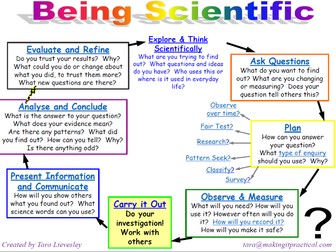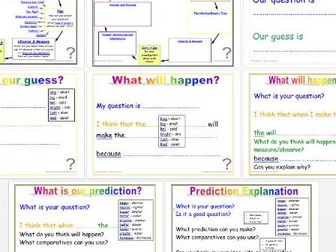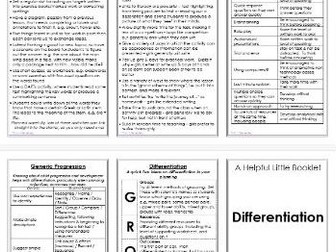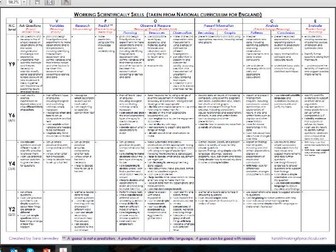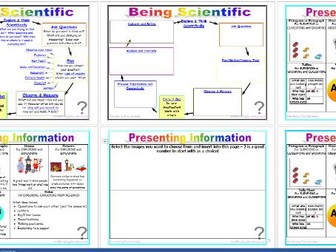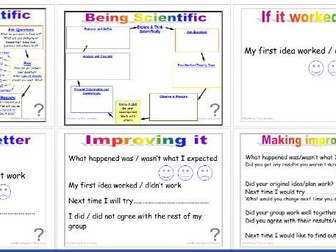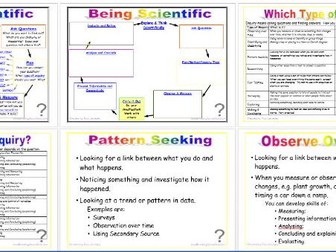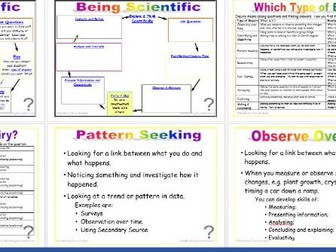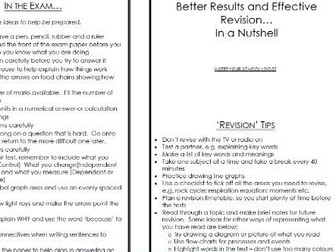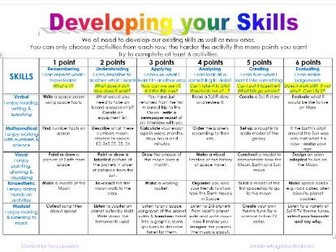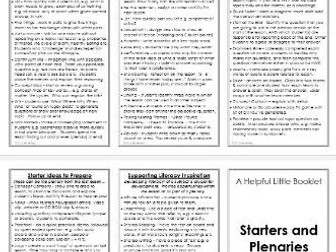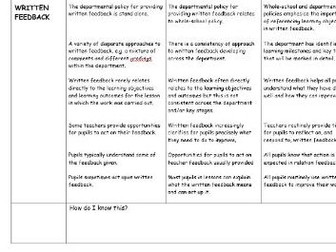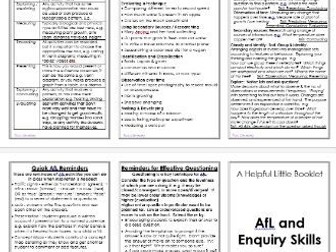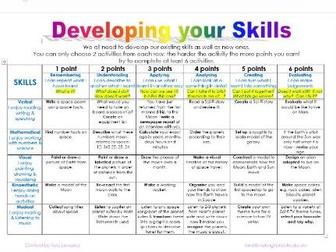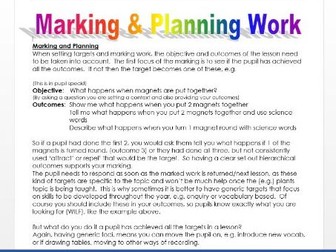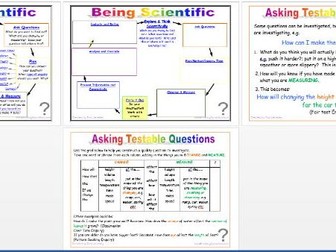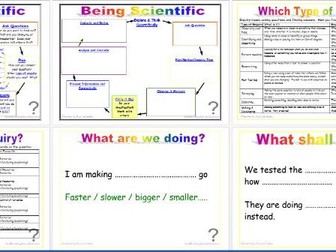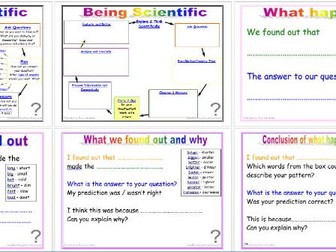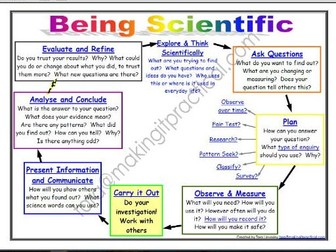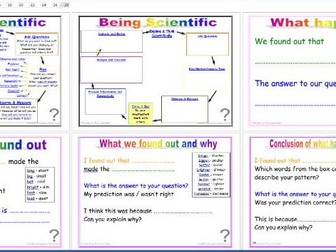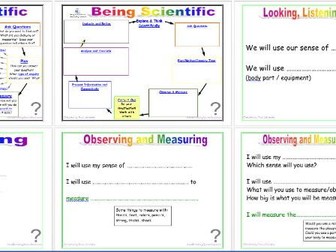
Being Scientific: Working Scientifically in Enquiry and Investigation - Complete Resource
This is the COMPLETE pdf resource that you can purchase individual parts for to help with focus on scientific enquiry/working scientifically skills and working in a scientific manner, whilst maintaining the ‘enquiry cycle’, with progression built in. There is also support for deciding on the type of enquiry. This resource and be used from 5 year olds upwards, depending on ability.
You can view a sample for free from here: http://www.makingitpractical.com/beingscientific.html
The individual elements are for sale, but this 'bundle' also includes the student's and the display documents as a bonus.
Whilst the terminology may have changed to ‘Working Scientifically’ in the National Curriculum for England, and the International Community use Inquiry rather than Enquiry, the skills involved are still pretty much the same what every you call them. It’s about ‘being scientific’ and this involves thinking in a certain way - simply put, it is about asking questions and finding answers. The method developed in the way the questions are answered and the analysis of the data discovered, leading to more questions… and so the cycle continues…
This resource was developed to support that process as well as the use of individual skills.
Each stage (the 7 boxed areas) has a series of age related support cards ‘underneath’ it, so the resource is quite a large one! Use it either with children for independent work or for you, the teacher, to use as an aid or prompt. Use it on the whiteboard for whole class teaching and to help illustrate which skill area is being developed in that session. If you want to develop individual skills as a focus of a lesson whilst maintaining the concept that it is part of a bigger picture, then this resource can help you. There is also the opportunity to use this as a 'desk resource' such as used when providing prompts and key points for different genres of writing.
Based on the a generic progression, bringing together aspects of thinking, child development, and Blooms Taxonomy this resource supports the National Curricular of many countries without being restrictive to a single one. By definition because of the author’s background, it will be more closely aligned to the English National Curriculum for Science than any other.
The resource consists of:
pdf of PowerPoint of the individual resources also available from the author on the TES website
A pupil version for when they are planning a complete investigation (older pupils)
A display version, to enable you put examples of each skill on display, depending on your topic.
This resource is also available as a PowerPoint and as a Word document (from the TES website), which is then fully editable. Contact me if you have any questions or to find out about other resources I have: tara@makingitpractical.com
